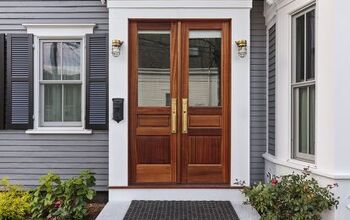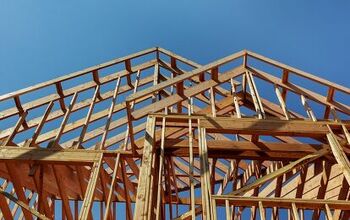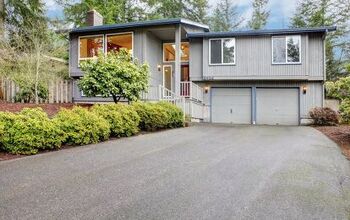How Big Of A Shed Can I Build Without A Permit In Oregon?

Building a shed in Oregon is a great solution for a myriad of needs, including storage, workspace, or a guesthouse. But, just because these useful structures aren’t connected to your home doesn’t mean you can build them however you please. Before you build a shed, you need to determine if you require any kind of permit.
In many counties throughout Oregon, you can build a shed with up to 120 square feet of floor space. You won’t need a building permit for this size shed, but you will need a zoning permit. If you build a shed greater than 200 square feet or 10 feet in height, you need a building permit.
Of course, permit requirements, building codes, and regulations vary from county to county. Therefore, before starting any shed-building project, it’s imperative that you contact your local municipal office and speak with an official. In the meantime, it’s always a good idea to arm yourself with some basic knowledge.
Do You Need a Permit Service?
Get free, zero-commitment quotes from pro contractors near you.

What Does the Oregon Building Code Say About Sheds?
According to the Oregon Residential Specialty Code (ORSC), Section R105.1, certain structures are exempt from building permits and inspection. Regarding sheds, the following projects don’t require a building permit:
- “Non-habitable one-story accessory buildings with no greater than 200 square feet of floor area.”
- “Non-habitable one-story accessory buildings on parcels greater than 2 acres.” If they’re “not more than 400 square feet in floor area and set back 20 feet from the property line.”
However, if you are building a larger structure, you will need a building permit. For example, in Portland and other counties, you need a building permit for accessory units greater than 200 square feet. (Unless your shed meets the requirement mentioned above in number two).
The 200 square feet applies to the interior of the shed, from the inside of the exterior walls. You also need a building permit if your shed is taller than ten feet. This height is measured from the finished floor to the average height of the roof.
Therefore, if your shed’s smaller than 200 square feet but taller than ten feet, you still need a building permit.
Building Permits Aren’t Just for Building
It’s worth noting that you don’t just need a building permit to erect a shed larger than 200 square feet. You also need to obtain a building permit if you plan to alter or demolish a shed this size.
Likewise, you need a building permit to tear down or change a structure that is taller than ten feet. This same rule applies to other accessory structures like garages and carports.
Building Permits and Zoning Permits Are Not the Same
If your shed project doesn’t require a building permit, that doesn’t mean it is also exempt from a zoning permit. If you’re building a structure with no more than 120 square feet of floor space, you need a zoning permit.
Unlike a building permit, which upholds construction standards, a zoning permit enforces local zoning requirements regarding land use. The main points considered for zoning purposes are setbacks and easements.
Setbacks
A setback is the minimum distance you must set your shed back from various public areas to protect these spaces. For example, there are setbacks for streets, rivers, flood plains, shores, and similar areas.
For the specific distance necessary between your shed and these areas, consult your city’s zoning regulations. You can often find this information on the same website as the zoning permit application.
Easements
An easement is a public utility space, and you’re not allowed to place any building on this area. Easements are fairly common on many different types of properties.
According to Oregon statute, an easement is “a non-possessory interest in the land of another person.” Furthermore, an easement “entitles the holders of an interest in the easement to a private right of way.” This basically means an easement allows you to pass across someone else’s property.
Before applying for any permits, establish whether or not your property includes any easements. You can check your title report or your town’s public works office to find this information. Knowing this information first can save you a lot of time in the permit process.
How Do You Get a Zoning Permit for Your Shed?
If your shed is less than 120 square feet you will need a zoning permit. Before you start your project, check with your local Planning and Zoning Department.
You need to find out what type of plans, if any, you need to submit with your zoning application. The office can also tell you if there are any special requirements or if you need a land-use review.
The Planning and Zoning staff reviews all zoning permit applications. In some cases, other bureaus might also review the application, like the Bureau of Environmental Services or Office of Transportation.
You Might Need Other Permits
Whether or not you need a zoning or a building permit, there are other permits you might have to get. If you plan to install any electrical or plumbing systems in your shed, you will need the proper permits.
If you build your shed in a flood zone, you’ll have to ensure you comply with local flood zone requirements. Therefore, always check with your local building office to make sure you know exactly what you need.
How to Get a Building Permit in Oregon
If you decide to build a larger shed than is allowed without a building permit, you’re not out of luck. However, you will have to go through a few more hoops and a lengthier process.
You can typically find applications for building permits online. Check out your local municipal office’s website since permit information and the application process will vary from city to city.
You can visit PermitsProtect.info to find the appropriate department based on where you plan to build your structure.
What Information Do I Need for a Permit to Build a Shed in Oregon?
The information you need for your permit will vary based on your location but typically includes several things.
- The address of your planned structure
- A legal description of the property where your structure will be
- A description of the work you plan to do
- The property owner’s name, address, email address, phone number, and fax number
- If applicable, your contractor’s name, address, phone number, and state license number
- Multiple sets of completed plans (Your local building department can tell you the exact number of copies you need and what your plans should include).
Once submitted, an Oregon-certified plans examiner will review your plans. If he determines that your project meets the requirements of the Oregon Residential Specialty Code, your application will move forward.
How Much Do Permits Cost to Build a Shed in Oregon?
No matter what type of permit you apply for, you can expect to pay some type of fee. These fees usually depend on the size and intended use of your shed. The cost can vary widely from city to city and from project to project.
However, a good rule of thumb is that building permit fees reflect the value of the work being done. This value takes into account both material and labor costs of your project. Therefore, if you’re building a $10,000 shed, your building permit might cost you roughly $300.
If you have extra work done that involves things like electrical, plumbing, or mechanical work, fees will likely increase. For the exact cost of your permit, consult with your local permit office and inspector.
Do You Need a Permit Service?
Get free, zero-commitment quotes from pro contractors near you.

Related Questions
What happens if I don’t get a permit for my shed in Oregon?
Permits are used to ensure public safety measures. If you fail to obtain a required permit, you can open yourself up to additional liabilities and costs. Not getting a permit can also tie up any future transactions if you try to sell your home. If your contractor fails to obtain a permit, this is a breach of Contractors License Law. If you find you need to obtain a permit after your structure is already built, don’t panic. No permit doesn’t necessarily mean you need to tear your shed down. An inspector will come out to examine the structure. If it meets all current codes, you will likely just pay the permit fee and be good to go. In some cases, you might need to remove a small section of the wall, floor, or ceiling. This is for the inspector to examine things like electrical, plumbing, or structural components. If your structure doesn’t meet code, you’ll have to make changes, or in extreme cases, remove the structure.
Do permits expire?
According to the Oregon Residential Specialty Code, your permit becomes invalid if work doesn’t start within 180 days of issue. It will also become invalid if work is suspended for a period of 180 days after work starts. Every time an inspection is performed on a permit, it is extended for another 180 days. If a permit does expire, the building official has the power to extend it. Expired permits are retained for 2 years then destroyed. Permits for completed structures are retained for the life of the structure.
Can my neighborhood stop me from building a shed on my property?
If you live in a gated community or an area with a homeowner’s association, you may have signed a contract. These contracts can include several restrictions about what you can do on your property, such as build a shed. Before you start the permit process, check your neighborhood contract first to make sure you’re not violating your agreement.
Related Guides

Stacy Randall is a wife, mother, and freelance writer from NOLA that has always had a love for DIY projects, home organization, and making spaces beautiful. Together with her husband, she has been spending the last several years lovingly renovating her grandparent's former home, making it their own and learning a lot about life along the way.
More by Stacy Randall



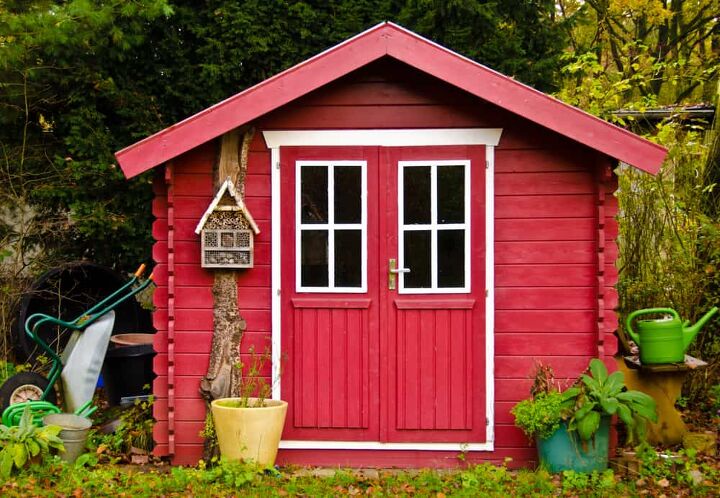






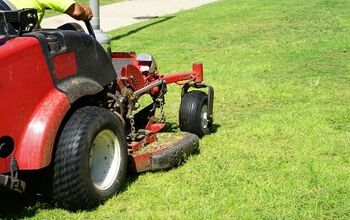
![10 Best Electric Lawn Mowers - [2022 Reviews & Top Rated Models]](https://cdn-fastly.upgradedhome.com/media/2023/07/31/9070486/10-best-electric-lawn-mowers-2022-reviews-top-rated-models.jpg?size=350x220)
![10 Best Electric Pressure Washers – [2022 Reviews & Guide]](https://cdn-fastly.upgradedhome.com/media/2023/07/31/9070600/10-best-electric-pressure-washers-2022-reviews-guide.jpg?size=350x220)
